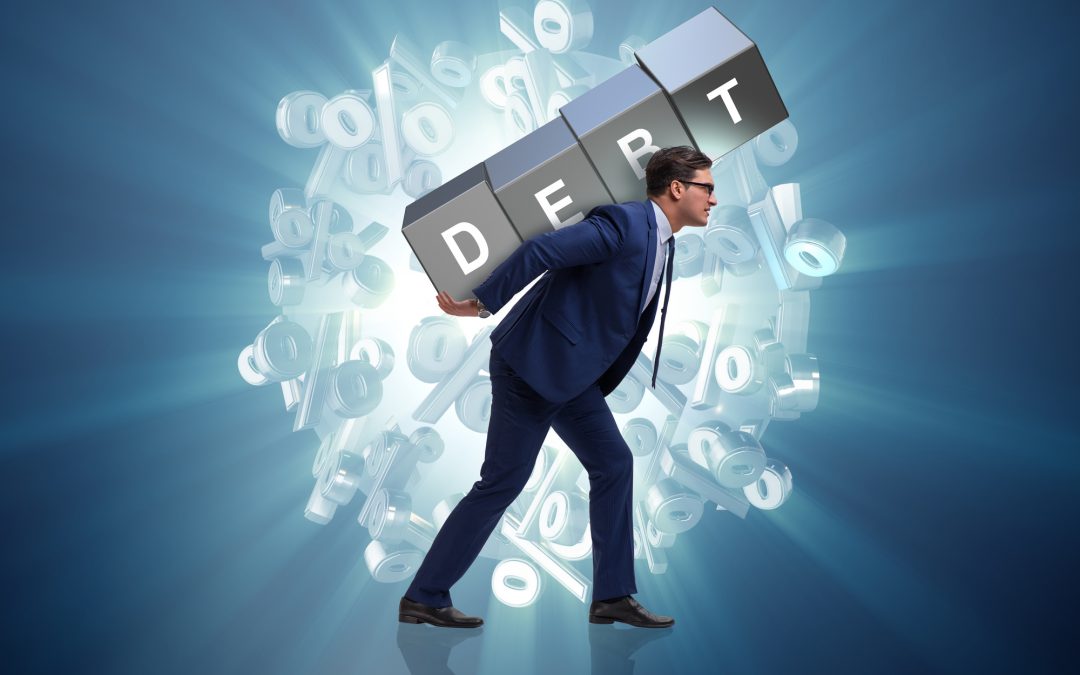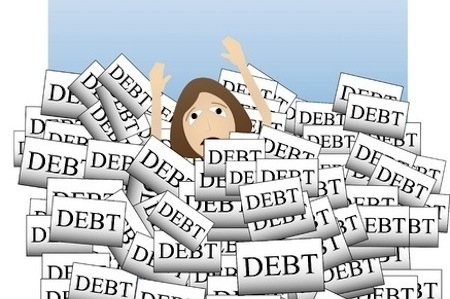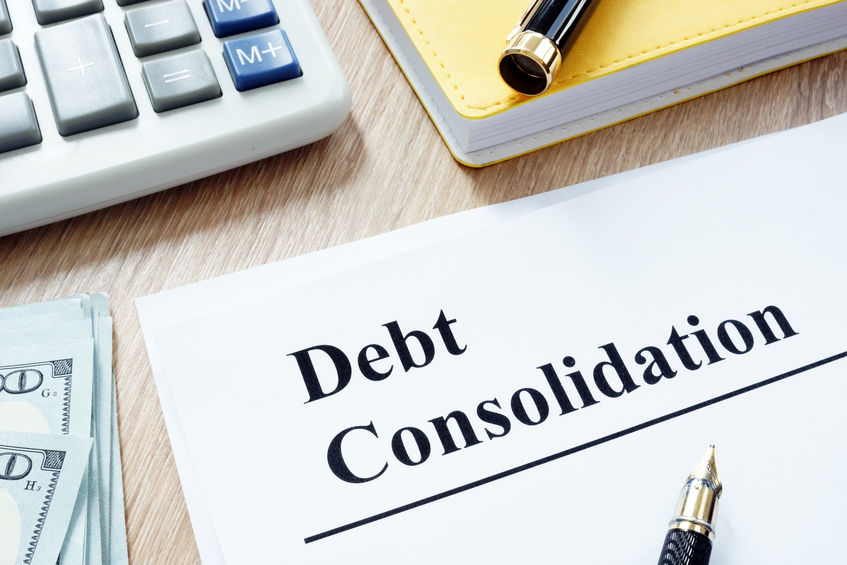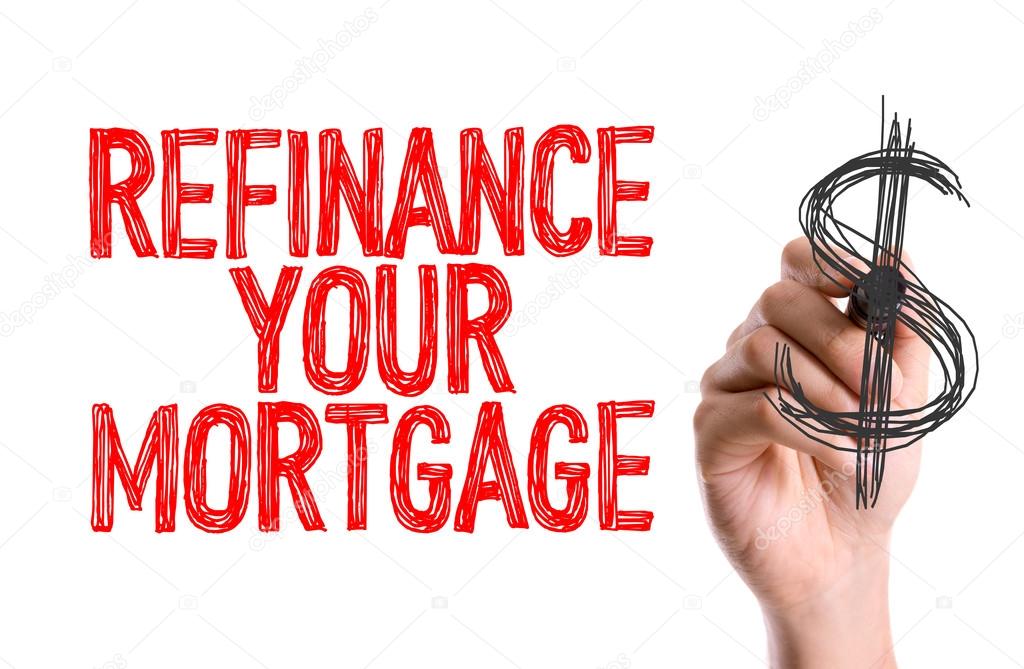
Jan 20, 2020
Here are some risks that debt consolidation caries:
- Some Loans Have Prepayment Penalties– Prepayment penalties aren’t as common as they once were, but they remain a factor in debt consolidation decisions. Where they exist, prepayment penalties may erode the case for consolidation. Always crunch the numbers to determine the net cost of an early payoff.
- Subprime Borrowers May Struggle to Find Affordable Loans without Collateral – Credit-impaired borrowers may struggle to qualify for unsecured debt consolidation loans with suitably low monthly payments, finance charges, or both. Such borrowers may need to put up valuable collateral, such as car titles, to qualify for secured debt consolidation loans.
- Secured Debt Consolidation Loans Risk Asset Loss – Although they invariably carry lower APRs or fixed – rate than comparable unsecured loans, secured debt consolidation loans present a unique risk for delinquent borrowers: potential asset loss.
There is a huge downside to consolidating unsecured loans into one secured loan. When you pledge assets as collateral, you are putting the pledged property at risk. If you can’t pay the loan back, you could lose your house, car, life insurance, retirement fund, or whatever else you might have used to secure the loan.
- One Loan Can’t Change Unhealthy Financial Behaviors – Using a debt consolidation loan to wipe out high-interest debts may actually reward unhealthy financial behaviours. While all debt-ridden borrowers stand to benefit from debt consolidation, those who inched into debt through poor money management must take concrete steps to avoid a repeat in the future.

Jan 20, 2020
The biggest problem with debt consolidation is that it doesn’t address the reasons why you got into debt in the first place. If you don’t change your spending habits, then consolidating debt is only going to be a short-term fix.
Debt consolidation is also may not be for you if your credit score is low and you’re unable to qualify for a lower interest rate. Simplifying your monthly payments is helpful, but only if you can eliminate the amount you’re paying in interest.
While you can use your home equality loan to consolidate your debt, it is not always advised. You will be converting your unsecured loans into a secured loan. While this will result in a lower interest rate for the debt, you will be putting your home in jeopardy if you’re unable to make the monthly repayments. Sometimes, if you are consolidating for the wrong reasons, it might not be worth it.
And finally, if you use introductory 0% or low APR credit card for a balance transfer, be sure when the introductory 0% APR offer expires, your debt is paid off by that date. After that date, the interest rate is likely to skyrocket, and if you still owe the balance your balance, you could end up in the same financial situation you’re already in.

Jan 20, 2020
Depending on your circumstances, debt consolidation may or may not be right for you. For every benefit of borrowing to pay down your debts, there’s a drawback or caution to keep in mind.
Here are a few scenarios when you might consider debt consolidation:
- Your outstanding debt (excluding your mortgage) is less than 40% of your monthly income.
- You have a high credit score and can qualify for good rates on a balance transfer card or debt consolidation loan.
- Your income is high enough to meet your monthly debt repayments.
- You have a strategy for staying out of debt in the future.
Here is an example of when debt consolidation is a good plan. Let’s say you have three open credit cards with interest rates ranging between 19% and 25%. If you’re able to qualify for an unsecured personal loan with a lower interest rate than an 8% interest rate, then debt consolidation could be a good plan. You’re saving money on interest and can get out of debt quicker than if you continue paying on high-interest credit cards.

Jan 6, 2020
While debt is never ideal, many of us find ourselves in that situation at one point or another in our lives. You may have heard of the term debt consolidation floating around and if this has sparked your interest, it’s important to know all of the details surrounding it starting with what it is. In short, it is a process that allows you to combine all of your unsecured debts into a single monthly payment so that you’re no longer paying multiple bills with different due dates each month. This is done through a loan, which is used to pay off your existing debts and you are then responsible for paying off the new consolidated loan.
There are different methods that can be used for debt consolidation, including a home equity loan or a loan from a bank. Regardless of which method you choose, it’s very important to understand that consolidating your debt does not reduce it in any way. It may feel as though a weight has been lifted off your shoulders but the amount of debt you’re in is the exact same as it was before you combined it all together into a single payment. Debt consolidation isn’t a quick fix, and it won’t solve all your financial problems. When you consolidate debt, you’re not really paying it off. Instead, you’re just moving it around in a way that makes it easier to pay.
As with everything else, there are pros and cons to debt consolidation and it’s crucial that you consider both sides to determine whether or not this option is right for you. It’s worth considering if the final consolidated debt has a lower monthly payment than what you were paying before or if it has a lower interest rate because only in these cases would it be beneficial. If the payments and rates are higher, it doesn’t really make sense to proceed this way. You should also consider that while lower monthly payments or interest rates are great, it normally comes with a longer repayment period, so you have to make sure that you’re comfortable with this and see whether or not it is a good idea because you may be paying more interest on your debt this way and it may be possible to pay off your debts faster if you leave them unconsolidated.
It can be a good option, but you need to address the reasons why you got into so much debt in the first place. If you don’t change your spending habits, then consolidating debt is only going to be a short-term fix.
Before you consolidate debt, weigh all the options available to you. Understand the risks associated with your debt consolidation method. Finally, make sure you repay the loans you take out to consolidate debt.

Jan 6, 2020
Refinancing your mortgage can help you obtain lower interest rates or tap into your equity to pay off outstanding debts. Below, we walk you through the necessary steps if you decide that refinancing your mortgage is a great option for you.
What Is Mortgage Refinancing?
When you refinance your mortgage, you replace you’re existing home loan with a new one. Mortgage refinancing is a great way to reduce your interest rates or decrease your monthly payments.
When you purchase a home, you get a mortgage to help you pay for it. The money will go to the person selling the home. When you refinance your mortgage, instead of the money going to the seller, the new mortgage will pay off the balance of your previous home loan. Refinancing requires you to qualify for the loan in the same way that you did when you got your initial home loan.
Why and When Should You Refinance?
Reduce Your Monthly Payments
If you want to pay less every month, refinancing your mortgage will allow you to get a lower interest rate. Another way to do this is to extend the loan term. However, the biggest disadvantage of extending your term is that you will end up paying more interest in the long run.
Move From An Adjustable To A Fixed-rate Loan
Interest rates on adjustable-rate mortgages have the potential to either go up or down, which can lead to larger payments over time. When you refinance your loan, you can move to a fixed-rate mortgage, which remains the same each month. The predictability that this provides makes planning your budget an easier task.
You’ve Decided To Refinance, Now What?
The next step is to use a mortgage refinance calculator to help you find the best mortgage. It’s important that you know or have an idea about your new interest rate and the loan amount.
The mortgage refinance calculator will calculate your monthly savings, payment amount, and long-term saving, while considering the estimated costs of your refinance.
Using a refinance calculator will give you a great idea of what to expect when refinancing, and acts as a great first step to understanding what a refinance will look like for your unique situation.
Shop The Best Refinance Rate
Now comes the hard part. You’ll want to research in order to find the best offers. This can be a tough job and it’s best to have a professional by your side with your interests in mind to ensure that you are choosing the right lender. SAN Mortgage is the team you want behind you when making the decision to refinance. We have the knowledge and expertise to ensure that you make the most beneficial decision when it comes to your mortgage.





